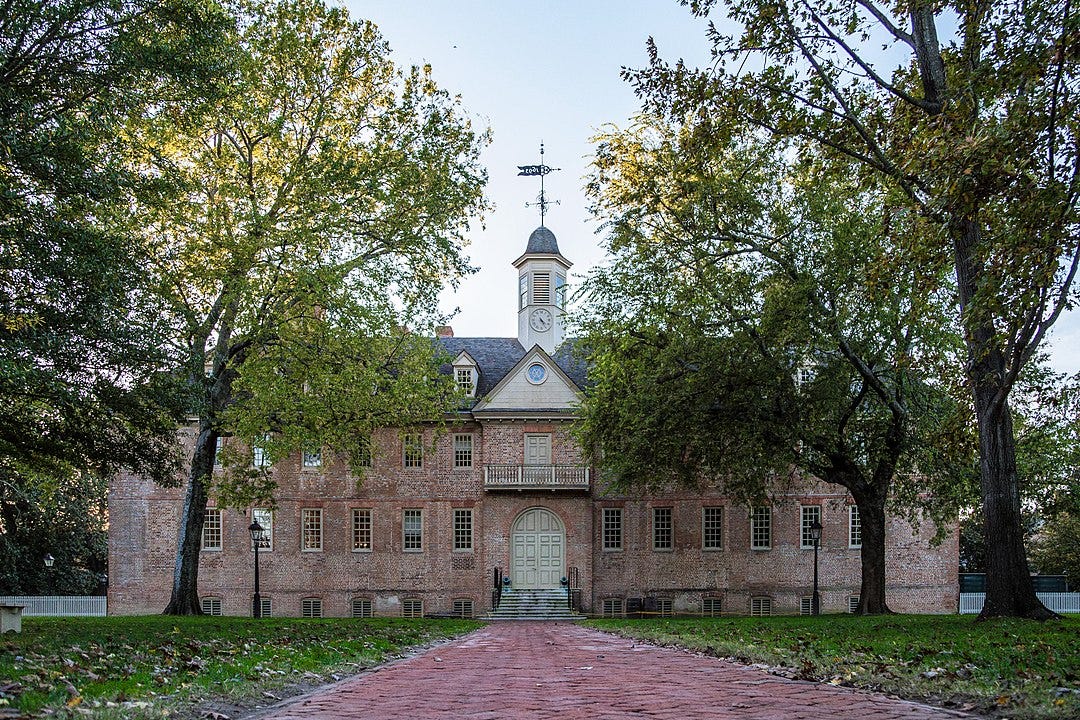In the first part of my college guide for Christian families, I encouraged students to answer two big questions before they apply to college: why they want to go, and when. As we continue into part two, we’ll start to consider a different question: How (to choose a college)?
During my senior year of high school, I once took two days off to tag along with my father on a business trip to Washington, DC. While Dad sat in meetings in a Maryland suburb, I took the Metro to one of Washington’s most historic neighborhoods and visited Georgetown University. It was late in my college search; I’d already applied to six other universities. But Georgetown was high on my list, and I wanted to see the campus before writing my application.
In retrospect, my choice of Georgetown illustrates well the strengths and weaknesses of my approach to choosing a college.
On the plus side, it showed how I was taking location seriously, as a Midwesterner who wanted to see a different part of the country and knew how many opportunities the nation’s capital afforded someone interested in history and politics. I was especially interested in studying international relations. Georgetown is not only situated in a world capital, but has a highly regarded school of foreign service. Sitting in on a class there left me impressed by the thoughtfulness and curiosity of the professor and students alike.
But if I’m being honest, the main reason Georgetown popped up on my radar and then captured my imagination is that my favorite fictional character studied there. Jack Ryan, the unlikely hero of Tom Clancy’s popular spy thrillers, had taken history classes at Georgetown. I dreamed of following in his footsteps, maybe someday working for the CIA myself as the United States faced the uncertain challenges of a post-Cold War world.
Mostly because of that dubious reason, Georgetown was my top choice. But while it accepted my application, Georgetown didn’t offer me any scholarships.
So I instead chose the College of William and Mary, a less expensive but still prestigious institution. While it’s found in a former colonial capital called Williamsburg, not the center of the U.S. federal government, W&M had strong history and government departments. Maybe most importantly, it awarded me a small scholarship and — after my parents completed their relocation to the other side of Virginia1 — in-state tuition.

Cost, location, program quality — all those criteria mattered. But it’s the criterion that I didn’t consider then that’s most striking to me now.
While I’ve spent twenty years on the faculty of a Christian college, I have to admit that my faith had almost nothing to do with my final college decision. I was barely aware that Georgetown is a Catholic university. When my tour guide mentioned that some professors were “brothers,” I didn’t realize she was talking about the Jesuits. Not that I would have known to ask what difference that made.
In the end, I picked a public college where I studied religion as an academic subject and got to know professors and peers from all sorts of religious and non-religious backgrounds. I went to church across the street from campus, but mostly kept my faith separate from my learning. It was a world apart from the Christian college where I now work as a professor, regularly integrating my faith into my teaching and writing.
Whenever and why-ever they do it, no one goes to college in the abstract. At some point, every student needs to whittle that list of 4,000 names down to one and decide which college they will attend.
As my experience illustrates, there are better and worse ways to go about that process, and lots of criteria to consider. So the second section of College for Christians asks questions meant to help guide you through the process of sorting through options, narrowing your choices down to a manageable list, then making the best decision possible.
In this section:
Ch. 3 - “How Much Does College Cost?”
Ch. 4 - “Is College Worth It?”
Ch. 5 - “Should I Pay Attention to College Rankings?”
Ch. 6 - “Should I Consider a Public University?”
Ch. 7 - “What Makes a Christian College ‘Christian’?”
Ch. 8 - “How Do I Know If a College Is a Good Fit?”
Ch. 9 - “What If I’m a First-Generation Student?”
Ch. 10 - “What If My Top College Choice Rejects Me?”
Ch. 11 - “How Can I Know That My Child Will Be Safe at College?”
Not part of my college plan; just a fortunate coincidence.





If a student is a committed Christian, they should probably not go to a specifically Christian university. Instead, head for somewhere secular that offers a high academic standard. It is important that college years are used to expand your intellectual horizons and give an opportunity to meet and mix with those of different backgrounds and viewpoints. It can only be good to encounter a wide mix of people and ideas. If Christian faith is strong, questioning aspects of ones beliefs and opinions can only be a good thing, leading to discernment and honing of one's views.